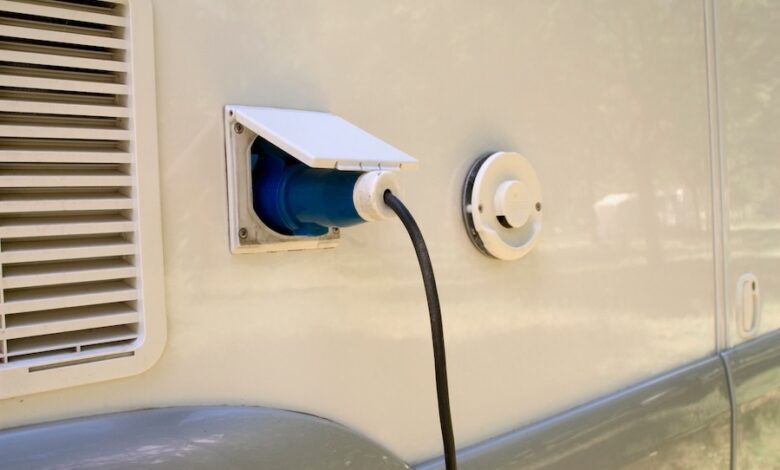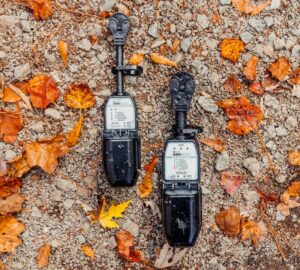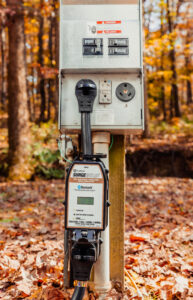RV Dealer’s Guide to Electrical Safety: Products & Hazard Prevention
Help your customers stay safe on the road by educating them on common electrical hazards, plus the must-have safety products every RV should carry.

When it comes to modern RV travel, electrical safety isn’t just a luxury — it’s a necessity. Whether your customers are weekend warriors or full-time RVers, they rely on a safe, stable electrical system to power everything from air conditioning to kitchen appliances. As an RV dealer, your role goes beyond selling RVs. You’re also a critical educator in helping customers understand how to stay safe and avoid costly or dangerous mishaps.
This article provides critical information dealers should share to promote responsible RVing, along with a breakdown of essential electrical safety products every RV dealership should stock.
Common Electrical Hazards for RVs
There are many issues an RV owner will come across during their travels. RV dealers can help promote safe travel by educating their customers on a few key hazards before they hit the road.
Common issues include:
Power Pedestals
Power pedestals are the single largest threat to an RV’s electronic circuitry. The pedestal could be miswired, old or simply outdated — all of which can result in faulty electrical power, causing potentially dangerous voltage surges and spikes. Ensure the RV owner has the proper equipment to be able to handle the spikes and surges it’s likely to receive from these pedestals.
Plugging & Unplugging

It is important that RV owners know to turn the breaker off when plugging in and unplugging their vehicles. This not only helps prevent power surges but also protects the owner from potential electrical shock. Additionally, turning the breaker off helps avoid unnecessary wear on the pedestal connections, which is why it’s becoming a requirement at most campgrounds.
Cords & Prongs
There are countless cases where cords are left plugged in while the RV owner drives off, the prongs on the cord can become corroded or cords get damaged from improper unplugging techniques. It is a best practice to inform all RV owners on how to take care of their cords as well as to check their cords and prongs before plugging in their RV and before they leave for their next destination. This can help alert the owner if the prongs on the cord are corroded.
Safety Equipment for RVs
There are many safety tools and products that bring peace of mind when traveling in an RV. These are just a few of the tried-and-true products that help RV owners keep themselves and their belongings safe.
Surge Protectors
Spikes and surges can cause severe damage to all electronics, even if they’re not close in proximity, making it crucial for RVs since they’re more likely to receive inconsistent power. Surge protectors are the first line of defense in ensuring important appliances such as air conditioners, microwaves, TVs, computers and hair dryers stay safe. It is strongly recommended that an RV owner invest in a surge protector as extra protection for all their electronic assets.
Multimeter Electrical Tester Kit
 RVs have complex power systems. Owning a multimeter test kit is incredibly beneficial as it allows the owner to test the voltage of a power source, like an outlet or a power pedestal, and helps them gauge if it is safe. This not only saves time and money on RV repairs but also helps prevent bigger issues that could arise from unnoticed electrical faults.
RVs have complex power systems. Owning a multimeter test kit is incredibly beneficial as it allows the owner to test the voltage of a power source, like an outlet or a power pedestal, and helps them gauge if it is safe. This not only saves time and money on RV repairs but also helps prevent bigger issues that could arise from unnoticed electrical faults.
Camper’s Tool Kit
A well-stocked tool kit is essential for any camper. A basic tool kit with some screwdrivers, wrenches, socket set, utility knife, flashlight, cable ties, tape, hammer and more will prove useful when unexpected repairs and maintenance tasks arise while out on the open road or at a campsite. Campers are often far from professional help, so being able to make minor repairs adds a layer of self-reliance and safety.
Electrical safety can be one of the most overlooked aspects of RV ownership, especially for new buyers. By carrying the right products and having knowledgeable staff who can guide customers through their use and importance, RV dealers play a crucial role in preventing accidents and protecting lifestyles. Help customers hit the road with confidence in their electrical setup so they can travel safely with peace of mind.
The National Electric Code, the benchmark for safe electrical design, installation and inspection to protect people and property from electrical hazards, is published by the National Fire Protection Association and updated every three years. The 2026 edition will be released this fall. According to a report from the RV Industry Association (RVIA), the updated 2026 edition will “finalize the requirement and electrical evolution of protecting RV owners and users from the occurrences known as ‘hot skin.’ All RVs with 30A or 50A electrical service will be required to install a grounding monitor interrupter (GMI), which is a loss-of-ground device.”
“Hot skin” — when metal components of an RV become electrified — is a serious safety hazard and caused by improper grounding or electrical faults. A GMI, which will detect incorrect wiring or a loss of ground connection, won’t allow electricity to flow through it or will disconnect power should a loss of ground connection occur.
For more information, visit the RVIA’s report HERE.



